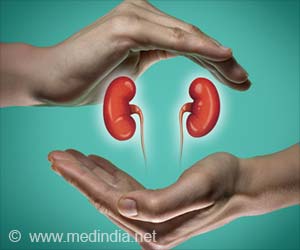The World Contraception Day raises awareness about birth control among young people and couples to avoid unwanted pregnancy, abortion and maternal deaths.
- World Contraception Day raises awareness about contraception among young people
- Contraceptive methods help avoid unplanned pregnancy, sexually transmitted diseases and abortions
- Effective contraceptive methods are implantable birth control, intrauterine devices and sterilization
Importance of Contraception
In the developing countries, about 255 million women who want to plan their pregnancies lack access to modern contraceptive methods. This avoidable risk increases maternal mortality, which is the leading cause of death among women of reproductive age. Unintended pregnancy and HIV are two of the greatest threats to the sexual and reproductive health of women. Women living in areas with high rates of HIV, lack access to contraceptive methods. Awareness about the modern contraceptive methods help women and couples make wise choices that help improve the well-being of women and the society.What is Contraception?
Contraception, also known as birth control is the method to prevent unwanted pregnancies. Different types of birth controls were being used in the past. However, safe and effective contraceptive methods were made available only in the 20th century.Some of the most effective methods of contraception are implantable birth control, intrauterine devices, and sterilization in women by tubal ligation and vasectomy in men. It is important to consult a healthcare professional to select the most suitable birth control method. Some of the methods that will help avoid unwanted pregnancy and improve sexual health are given below.
Condoms
Condoms are the most commonly used form of contraception. It is the only type of contraception that can prevent pregnancy and also protect against STDs. The two types of condoms are male condoms, which is worn on the male reproductive organ and the other type is a female condom, which is worn inside the vagina.
Oral Contraceptive Pills
The oral contraceptive pills contain synthetic female sex hormones that are responsible for ovulation. These pills suppress ovulation and cause changes in the uterus to prevent fertilization and pregnancy. Oral contraceptive pills are taken daily for three weeks with a break in the fourth week for menstruation.
Contraceptive Injections
Contraceptive injections release the hormone progestogen into the bloodstream. Progestogen is similar to the female sex hormone progesterone, which is released during menstruation.
Vaginal Ring
Clinical trials have shown that vaginal rings can reduce the risk of HIV in women. The ring releases an antiretroviral drug called dapivirine. This ring is the first to show efficacy against HIV and serves as a platform that could protect women against dual threats with one long-acting tool.
Contraceptive Implants
Contraceptive implants are a small flexible tube about 40mm long. It is inserted under the skin of the upper arm. The implant stops the release of an egg from the ovary by releasing progestogen and also thickens the cervical mucus and thin the womb lining. This prevents the sperm from moving through the cervix, thus preventing fertilization.
Intrauterine Devices
Intrauterine device (IUD) is a small plastic and copper device inserted into the uterus. IUDs are long-acting reversible contraception - it can stay for about ten years and can be removed when needed by a healthcare professional. IUDs stop the sperm from fertilizing the egg, and it can also stop ovulation.
Contraceptive Patch
Another method of contraception is a small patch stuck to the skin, which releases estrogen and progesterone. This patch helps stop ovulation. Some of the side effects of the contraceptive patch are a headache and nausea.
Facts About Contraception
- Contraceptive use is much lower in the developing countries like Africa
- Globally, the number of women using contraceptive methods would increase by 778 million in 2030
- One in ten women has an unmet need for family planning
- About 45,000 Indian women die for pregnancy and related complications every year
- Less than half of the married women in India use a modern method of contraception
- Only 0.3 percent men have undergone sterilization
- Only 5.6 percent men use condoms
Reference:
- World Contraception Day - (http://www.who.int/life-course/news/events/world-contraception-day/en/)
- September 26 World Contraception Day - (http://www.figij.org/event/world-contraception-day/)
- World Contraception Day: New Tools Could Pay Off for Women’s Health - ( http://www.ipmglobal.org/content/world-contraception-day-new-tools-could-pay-women%E2%80%99s-health)
Source-Medindia












